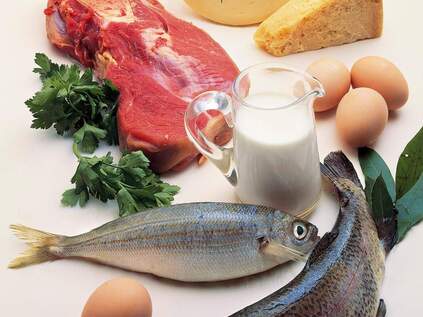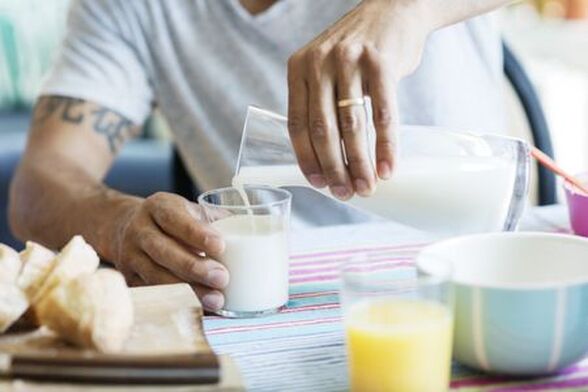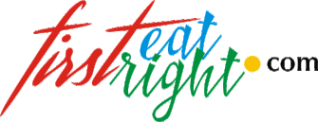 Choose Milk before Meat as it has a Greater Bioavailability Choose Milk before Meat as it has a Greater Bioavailability Debates over the goodness of a non-vegetarian diet in comparison to a vegetarian diet is unending and remains inconclusive. Though more and more people are becoming vegetarians these days with the evolution of an increased awareness on sustainable living and an interest to safeguard animals there still exists numerous pros and cons on taking up a vegetarian diet. Men have always loved meat as it establishes their masculinity, egg is the poor man’s door to health and chicken is indispensable during every occasion and function. Eliminating these from the diet routine and replacing them with equally nutritious vegetarian food remains a challenge to even the most health-conscious person. Among the common nutrients that are majorly present in animal-based foods vitamin B12 occupies a top spot. It is a commendable gesture from those individuals who leave back their favorite non-vegetarian routine and pursue a vegan/vegetarian diet but how are these people and those following a vegetarian diet right from start going to fulfill vitamin B12 requirements and meet the needs of all other nutrients too that are sometimes confined to animal sources? Firstly, we need to understand that there are replacements for almost all nutrients in a vegetarian diet and our job is to identify the exact one that suits our goals. Vitamin B12 & Our Health Vitamin B12 or cobalamin is an essential vitamin that’s required for DNA synthesis, nerve myelin integrity and production of healthy red blood cells. A lack of this vitamin can have multiple effects on the body such as weakness, anemia, dizziness, fatigue, weight loss, poor memory, soreness of the mouth and tongue and constipation. There are multiple circumstances under which an individual becomes a prey to vitamin B12 deficiency and this includes ageing, use of certain medications, gastrointestinal disorder and pursuing a vegan diet. The last reason remains vital and extremely critical as there are many individuals these days who are vegans eating a diet that’s devoid of eggs, meat, fish and dairy. These people are sure to develop vitamin B12 deficiency as they lack the inclusion of this nutrient in the diet. But this happens due to no mistake of theirs as there is no natural plant food that’s a natural source of vitamin B12. Vitamin B12 is something special here because it is produced only by bacteria and archaebacteria in the large intestine of animals when there is adequate cobalt supply. Among animal sources too, ruminants have a richer vitamin B12 content where the nutrient is absorbed in the ileum and stored in the liver and muscles or secreted in milk. Vitamin B12 is the only B vitamin that’s neither synthesized nor used by plants and its sole natural source is animal products such as eggs, cheese, poultry, meats and seafood. This makes it a great concern for vegetarians, especially vegans, whose diet is devoid of animal-based foods. Also, vegans/vegetarians consume more folate comparatively which can mask vitamin B12 deficiency. This prevents the early diagnosis of vitamin B12 deficiency and might also result in mild neurological damage. Vegetarian or non-vegetarian it is essential to know the reliable dietary sources of vitamin B12 that relate to plasma vitamin B12 concentration. One study showed that meat, fish and chicken were major sources due to the bioavailability of vitamin B12 in these foods. In another study researchers found that consuming fortified cereals and milk were good sources of this nutrient in 2999 individuals aged between 26 and 83 years. A Norwegian study on 5937 individuals showed that milk, dairy products and fish were positively linked to plasma vitamin B12 concentrations while another study showed that consumption of dairy and meat followed by fish and shellfish were good for vitamin B12 addition in the body while the same study showed that eggs intake was not significantly linked to serum vitamin B12 levels. Identifying the major sources of vitamin B12 with regard to dairy can help us study their effects on a vegetarian population. Major Sources of Vitamin B12 The study on major vitamin B12 sources included 728 participants with a median age of 58 among whom almost 65% were women. Diet intake was assessed using a dietary recall which included information on food, beverage and supplement intake. The intake recall was done on Saturday, Sunday and any one weekday and the same was repeated after 6 months. The average of the two recalls were taken to estimate mean daily vitamin B12 intake. Results showed that the highest sources of vitamin B12 was from milk and eggs, followed by milk alone, fish and meat. Younger age group individuals ate more from animal sources compared to older adults whose main vitamin B12 source were supplements and, women ate more fortified foods comparatively. The study showed that while supplements mainly contributed to vitamin B12 requirements in vegans and lacto-ovo-vegetarians, milk and dairy products were popular among those who did not use B12 supplements nor were in the habit of consuming other animal sources. Dairy as a Source of Vitamin B12 Vegetarians are found worldwide but in India lacto vegetarians make up more than 50% of the Indian population and are said to have very low quantity of vitamin B12 nutrient compared to non-vegetarians. Though this section of people consume milk the amount is not sufficient enough to improve vitamin B12 levels or it might also be that milk naturally has low levels of vitamin B12. A group of researchers in India wanted to know whether daily milk consumption could improve vitamin B12 status in vegetarians. The study consisted of 15 males and 36 females who were young, healthy, had completed their post-graduation, were not taking any B12 supplements and did not consume over 2 cups of milk daily. Pregnant women, non-vegetarians and lactose-intolerant individuals were not included. Blood samples from 10 participants (4 men and 6 women) were collected on day 1.These people and all other participants continued their regular diet for the next 14 days and on the 15th day blood samples of all 51 participants were taken, their plasma vitamin B12 concentration was measured and they were divided into two different groups namely normal and vitamin B-12 deficient. All the 51 participants drank 600 ml of non-enriched buffalo milk (200*3) during the day besides their regular diet and blood samples were collected the very next day for plasma holotranscobalamin II (holo-TC) measurements. Individuals belonging to the deficient group continued drinking 400 ml of milk daily for the next 14 days and blood samples were collected on the 30th day. Dietary recalls were taken by experts on day 1, day 15 and day 30 who recorded portion size and quantity consumed of the various foods that were rich in micronutrients. The research team split the foods rich in vitamin B12 and folate into four groups-milk milk-containing beverages, tea/coffee with milk, green leafy vegetables and other vegetables. Plasma holotranscoabalamin II (day-1, 15, 16, 30), vitamin B-12, folate, total homocysteine, creatinine and hematoloical parameters (day-1, 15, 30), and milk vitamin B-12 concentrations (day-15, 16, 30) measurements were noted down. Folate and vitamin B12 deficiency was defined as plasma concentrations <2 ng/ml and <148 pmol/L respectively, hyperhomocysteinemia as plasma tHcy concentrations >15 μ mol/L, low holo-TC concentrations as <35 pmol/L, anemia as a hemoglobin concentration <120 g/L in females and <130 g/L in males and macrocytosis as mean corpuscular volume > 100 fL. Results Male subjects consumed 1.1 μ g of vitamin B12 while female subjects consumed 1.35 μ g per day. Milk was the main source of B12 followed by yogurt. Tea/coffee with milk also was commonly seen in the participants’ dietary recall list. Results showed that:
References Food and Supplements Associated with Vitamin B12 Biomarkers among Vegetarian and Non-vegetarian Participants: https://www.ncbi.nlm.nih.gov/pmc/articles/PMC6024521/ Daily Milk Intake Improves Vitamin B12 Status in Young Vegetarian Indians: https://nutritionj.biomedcentral.com/articles/10.1186/1475-2891-12-136 Vitamin B12 and Vegetarian Diets: https://www.health.harvard.edu/vitamins-and-supplements/getting-enough-vitamin-b12 Comments are closed.
|
AVOID FRAUD. EAT SMART+91 7846 800 800
|
- Home
- Written Testimonials
- Consult
- Clinics
- Blogs
-
Diet & Nutrition
- Diabetes Reversal
- IVF IUI not needed for PCOS PCOD Infertility
-
Medical Nutrition
>
-
Disease & Conditions
>
- Infertility | PCOS
- Diabetes Mellitus
- Cholesterol
- Hypothyroid
- Kidney Problems
- Hypertension
- Cardiovascular Diseases
- Liver Diseases
- Gastro intestinal disorder
- Cancer
- Metabolic Disorders
- Orthopedic Disorders
- Eating Disorders
- Dietary Recall
- Weight Record Filled By Clients
- Online Payment Transaction Details
- Online Clients Weight Check Form
- Our Program Package Service Charges
- Weight Record 2017 Clients
- Measurements sent by Clients
- Terms & Conditions Of Payment
- Thanks. Your Form is Submitted
- Video Testimonials
- Lifestyle & Wellness
- Lifestyle & Wellness Blog
- Allergy & Intolerance
- Weight Loss / Gain
- Weight Loss / Slimming Blog
-
Disease & Conditions
>
- Life Cycle Nutrition >
- Sports Nutrition >
- Integrity in Nutrition
- Knowledge Centre
© COPYRIGHT 2022. ALL RIGHTS RESERVED. FRST HEALTHCARE PVT LTD.
Dr. Nafeesa Imteyaz of First Eat Right clinic, is the Best Dietitian Nutritionist in Bangalore. Best Dietitian Nutritionist in Pune. Best Dietitian Nutritionist in Hyderabad. Best Dietitian Nutritionist in Chennai. Best Dietitian Nutritionist in Mumbai. Best Dietitian Nutritionist in Delhi. Best Dietitian Nutritionist in Kolkata.



